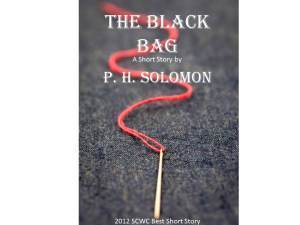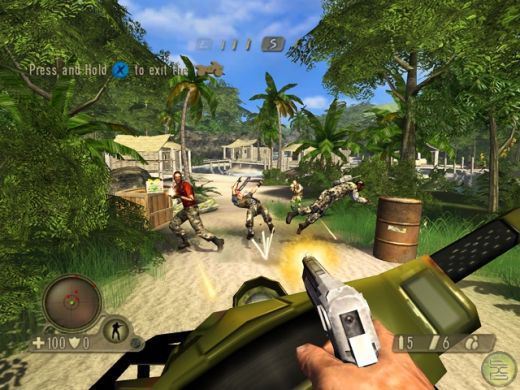P.H. Solomon's Blog, page 328
October 11, 2014
Does writing advice really help?
 PHS:
PHS:
Well said and wise observation – re-blogging on Archer’s AIM
 Originally posted on bottledworder:
Originally posted on bottledworder:

from pixabay
People vary vastly in their approach to work or play. So when I see a lot of writing advice doing the rounds (including my own), I’m rather skeptical. Unless the advice is really specific, regarding tone, structure, syntax or something else, it serves little purpose for me beyond motivation, which, admittedly, is a huge part of success in any endeavour.
Some of the advice comes from writers themselves, when a dry spell probably compels them to write about something and what better a topic than the one they know most about—writing?
A lot of the impetus for writing about writing comes from a high demand amongst readers, who would be writers, and are looking for some magic recipe that will tell them how write. They expect such instructions to be clear and bulleted, exactly like the ones on how to put a bookshelf together or how…
View original 507 more words
Filed under: Uncategorized








2 Lessons From DIY Self-Publishing

Available at Smashwords and All Major E-Book Vendors!
I just published my first e-book entitled The Black Bag which is on Smashwords catalog now. But I had a limited budget on which to complete this project. Since it is a short story I decided to publish it entirely as a DIY project.
Now many people might gasp and say that I needed professional services to produce this e-book and I agree regarding larger projects. However, I wanted the experience of doing the whole publication myself.
So what did I learn? For starters, Mark Coker’s Style Guide is extremely helpful to authors. But there are two aspects of the process that taught me what to expect from hiring other people to do some of the work. Here’s what else I learned.
1. Formatting isn’t that hard. I would feel completely comfortable formatting a full novel based on what I learned from the Style Guide. I was able to create styles and clean up errors in my short story with ease. The only mistake I made was using a template title page. It ended up having a table embedded which was not friendly with Smashwords converter (The Meatgrinder). This was easily remedied by deleting the table along with the text and creating a style after which I re-created the title page so that the problem with conversion was cleared.
2. Coverart is tricky but doable. I used a photo purchased from iStockPhoto but I initially added the text onto it with PowerPoint. Even though my photo was initially large enough, PowerPoint compressed the size so Smashwords did not consider the cover large enough. In the end, I downloaded Gimp and got the text added after which Smashwords accepted the correct size.
Conclusion: due to need I will hire and illustrator and commission my artwork but I may do my own formatting. For this size project it was worth my effort and time to do it myself. Now the question is whether the e-book is good enough. Well, take a look at the cover and the sample to see that all the internal links and formatting are correct. If it finally passes the litmus test with Smashwords and is distributed over the premium catalog then I’d say I did a pretty good job on this small project. NOTE: The e-book has passed muster for membership on the Smashwords premium catalog.
Have you every tried self-publishing as a DIY project? If so, what problems did you have and how did you rectify them? If you haven’t, what’s keeping you from trying?
Please leave comments. Also you will receive a coupon for a free copy of my short story by subscribing to this blog via email. Finally, follow me on Twitter @ph_solomon.com or on Facebook.
Thanks for reading,
P. H. Solomon.
[contact-form]
Filed under: Creativity, Indie Publishing, Marketing, Planning, Self-publishing, Writing Tagged: Announcement, Coverart, creativity, Formatting, P. H. Solomon, Planning, The Black Bag, writing








October 10, 2014
7 Steps To Start Having Amazing Conversations Over And Over Again
 PHS:
PHS:
Re-blogging on Archer’s AIM – these are great for writing dialogue too!!!
 Originally posted on Thought Catalog:
Originally posted on Thought Catalog:

image –
Flickr / Nicolas DECOOPMAN
The more I talk to people, the more I realize that conversations, connections, and closeness have less to do with your external attributes and more to do with your vibe, genuineness, and willingness to enjoy someone else’s company.
Truth is, I’m not a special person: I’m short, I have acne (I’m turning 27 soon), and I’m introverted. Sometimes I stutter. Sometimes I don’t want to talk to anyone. Sometimes my hair has a life of its own.
And the more I talk to people, the more I realize that none of that matters. So what does matter?
Well, here are a few lessons I’ve picked up over the years that have helped me escape my comfort zone and feel comfortable around strangers. Now, I’m no suave conversationalist and I still deal with my barriers; but tips these have helped immensely with talking to…
View original 1,523 more words
Filed under: Uncategorized








Joy Nwosu Lo-Bamijoko in “WHO’S ON THE SHELF WITH NONNIE JULES?”
 PHS:
PHS:
Enjoy the shelf, Joy! Re-blogging on Archer’s Aim.
 Originally posted on Rave Reviews by Nonnie Jules:
Originally posted on Rave Reviews by Nonnie Jules:
Hello and welcome to “WHO’S ON THE SHELF?” with yours truly, Nonnie Jules! Since we are a book club, you know we had to offer something that included a book shelf. A lot of interviews merely cover an author’s work or an individual’s career stories. Here on this “SHELF,” we get down and dirty and ask the questions no other interviewer dare ask. We ask the questions that you want to open up a book and find the answers to on your favorite authors and fellow book club members, but no one has dared to cover them. WE get personal! Because when you sit on the RRBC “SHELF,” YOU are an open book!
Today we have a very special guest on the SHELF with us. Joy is one of our VIP members, that means she’s UBER-SUPPORTIVE, and if you’re a VIP, you get invited to our exclusive VIP…
View original 3,268 more words
Filed under: Uncategorized








Quick Tip: Using Klout to Enhance Your Reach
Some days my analytics suffer and sometimes they really click well. Part of the reason for fluctuations in analytics is availability to interact. Weekends and holidays are some of the reasons I might post less. Of course I can schedule some tweets and posts but I also need ways to share other content than my own. I’ve found Klout to be a source that supplements my social media, especially on the days when I spend less time on my author platform. Here are a few aspects of Klout that help my social media:
It suggests some Twitter followers for me. I’ve followed some of these and gotten extra follows back off this action.
It suggests articles I can schedule to tweet the next day. This is great to share content links that I like. I’ve gotten extra retweets on days when I’m not able to be as active as other days.
 These little suggestions have proven to enhance my author platform in supplemental ways that really help over weekends and holidays.
These little suggestions have proven to enhance my author platform in supplemental ways that really help over weekends and holidays.
Do you have a Klout account? What do you use as a supplemental strategy to enhance your analytics when you have less availability? I’d love to hear from you so please leave a question, idea or strategy in the comment section. I’d also love to connect with you over social media so check my contact page for that information. See the News page for announcements and remember to sign-up to receive news and posts by email. I’ve added a new sign-up tab on my FaceBook page to simplify the process. New followers can download The Black Bag via free coupon today!
Thanks for visiting!
PHS
Clip Art Image Copyright by Microsoft. Clip Art Used by Permission of Microsoft
[contact-form]
Filed under: Blogging, Creativity, Indie Publishing, Marketing, Planning, Self-publishing, Social Media, Tech Tips, Tips, Twitter, Writing Tagged: creativity, Facebook, Goals, Indie Publishing, Klout, Marketing, P. H. Solomon, Pinterest, Planning, Social Media, The Black Bag, Tips, Twitter, writing








October 9, 2014
Main Characters are Two People
 PHS:
PHS:
An interesting take on character development – re-blogging on Archer’s Aim!
 Originally posted on Storiform.com:
Originally posted on Storiform.com:
 At times, my protagonist lacks the third dimension. Today, I found out why.
At times, my protagonist lacks the third dimension. Today, I found out why.
In her book, The Willpower Instinct, Kelly McGonigal, PhD, suggests that our prefrontal cortex’s ability to say, “I will,” “I won’t,” and “I want” separates us from the animals.
It’s as if there were two people inside each of us, she says – one who wants to be thin and one who wants a donut.
To bring a character to life, it may be essential to include the thing that this brilliant PhD health psychologist from Stanford considers the defining human trait: self-control.
Every living, breathing, leading fictional character contains two different people who are fighting for control. It’s an internal war.
Like everything real, the level of internal conflict falls naturally into a bell-shaped curve.
Heroes will often be outliers in their area of strength, of course…
Johanna, for instance, doesn’t hesitate to sacrifice herself for her autistic brother (he’s fighting depression in the latest version, actually).
But when it comes…
View original 270 more words
Filed under: Uncategorized








Bloggers, where do you find your blog post inspiration?
 PHS:
PHS:
An interesting question – I get mine from journaling and what I’m doing.
 Originally posted on Jodie Llewellyn:
Originally posted on Jodie Llewellyn:
In general, I’m pretty good at coming up with ideas for blog topics. Most of the time they just appear in my mind and work out! But every now and then I’m stumped on what to post. I imagine this happens to a lot of us. It’s probably the reason most blogs die slow and painful deaths.
Where do you find your blog post inspiration?
I find mine through google. I do searches like “blog post ideas for writers” and ultimately stumble across a gem of an idea. I also cruise Pinterest for quotes that I like and they sometimes trigger an idea also. I never plan ahead, I always just write posts by the fly of my pants. I know some bloggers have their blog posts planned out weeks in advance, but I’ve never done that.
Where do you find your ideas for your blog posts?

Filed under: Uncategorized








First and Third Person Viewpoint Problems
 PHS:
PHS:
These are helpful insights on POV issues – re-blogging on Archer’s Aim.
 Originally posted on C h a z z W r i t e s . c o m:
Originally posted on C h a z z W r i t e s . c o m:
 Sometimes writers can’t decide from which viewpoint to tell their story. Here’s why your agent or editor rejected your work when, assuming everything else rocked the Casbah, the problem was that the narrative‘s viewpoint failed to engage them.
Sometimes writers can’t decide from which viewpoint to tell their story. Here’s why your agent or editor rejected your work when, assuming everything else rocked the Casbah, the problem was that the narrative‘s viewpoint failed to engage them.
1. They wished you had gone with the viewpoint you didn’t choose. (They didn’t tell you because that’s not their job unless they’re already working with you.)
2. Your viewpoint choice works, but it’s simply not their cup of pee. It’s subjective. It’s not to their taste. You can’t blame someone for not liking something viscerally (any more than you would blame someone for preferring vanilla to chocolate (even though that choice is inexplicably insane.)
3. Third person is limited omniscience. (No, no one does pure third person omniscient anymore.) First person viewpoint is much more limited in scope. In third person, the author may slide into keeping the reader in the dark…
View original 278 more words
Filed under: Uncategorized








3 Ways To Blog Outside Your Schedule

Clip Art Image Copyright by Microsoft. Clip Art Used by Permission of Microsoft
Do you have days when your site visits are low but you don’t have time to blog? Usually I don’t release blogs over the weekend so I have few hits on my site. Generally my weekends are chocked full of activity so I have little time to check my site or update social media.
I’ve come up with an answer that I started trying over the weekends and here’s my strategy list:
1. Go through you older posts and schedule them to be re-posted over the weekend. There’s always some information you’ve shared months earlier that new followers and readers have not seen.
2. If you read other blogs and you find something you like that fits you blog then re-blog it. Don’t have time to read on the weekend? Then have the page up on your browser to simply and quickly re-blog when you the chance during the weekend.
3. Schedule social media posts about your re-posted blogs. Make sure these are scheduled after the re-posts occur.
Here are my results from my first weekend of trying this strategy:
On 10/4/14, I successfully completed all three of these strategies. The results were 6 times the number of site views than the previous Saturday (9/27). These were great results for the first day of this test.
On 10/5/14, I applied all three of the strategies. The results were 4 times the views and a very high Twitter engagement rate. Overall, these were solid numbers though not as high as the day before.
For the weekend, my site engagement was five times what ts was the previous weekend.
In summary of the first weekend trying these strategies, I find that these have worked. I will continue to monitor this strategy and report back further in the coming weeks including any additional strategies that I enact and the effect. I also find that my Twitter engagement is higher than the previous weekend which correlates to the increase in site views.
In closing, one might ask if this is a true number for the weekend. I say yes because re-posting gives new followers the chance to read previous posts they may have missed.

Clip Art Image Copyright by Microsoft. Clip Art Used by Permission of Microsoft
How do you deal with slow traffic days on your site? I’d love to hear from you so won’t you leave a question, idea or strategy in the comment section. I’d also love to connect with you over social media so check my contact page for that information. See the News page for announcements and remember to sign-up to receive news and posts by email. I’ve added a new sign-up tab on my FaceBook page to simplify the process. New followers can download The Black Bag via free coupon today!
Thanks for visiting!
PHS
Clip Art Image Copyright by Microsoft. Clip Art Used by Permission of Microsoft
[contact-form]
Filed under: Blogging, Creativity, Indie Publishing, Marketing, Planning, Self-publishing, Social Media, Tech Tips, Tips, Writing Tagged: creativity, Indie Publishing, Marketing, Planning, Social Media, The Black Bag, Tips, Twitter, writing








October 8, 2014
Novels aren’t movie scripts: how to write great dialogue in prose
 PHS:
PHS:
Excellent tips for dialogue – re-blogging on Archer’s Aim.
 Originally posted on Nail Your Novel:
Originally posted on Nail Your Novel:
 Do you learn your storytelling from movies as much as from prose? Have you cut your writing teeth on the wisdom of the hallowed screenwriting gurus (McKee, Field and Goldman)? Are you a screenwriter who’s making the switch to novels?
Do you learn your storytelling from movies as much as from prose? Have you cut your writing teeth on the wisdom of the hallowed screenwriting gurus (McKee, Field and Goldman)? Are you a screenwriter who’s making the switch to novels?
If so, you’ll certainly know some great storytelling tricks, but the two disciplines are different. Some movie techniques simply don’t translate to the page.
Indeed, if you’re writing your novel as though it’s a movie in your head, your ideas might not work as powerfully as they should.
I’ve already discussed a few general points in a previous post – scenes with a lot of characters, short, choppy scenes and point of view. There are other crucial differences between screen and page, so over the next few posts I’m going to look at them in detail.
Today: dialogue
Film is a visual medium. If we’re watching a scene in…
View original 616 more words
Filed under: Uncategorized












